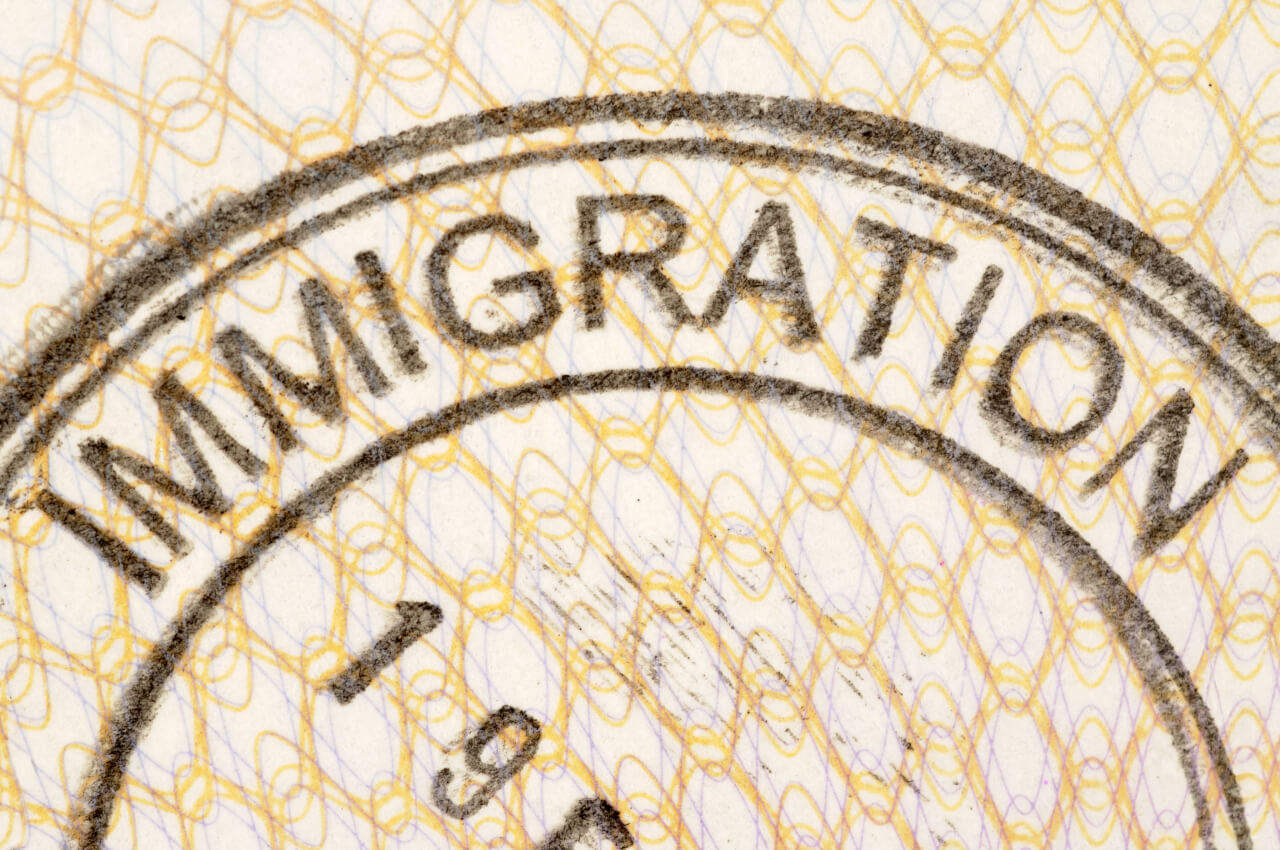Inadmissibility means that an individual is unable to seek admission or legal status in the U.S., due to a prior bad act or other wrongdoing by the individual. Individuals subject to the rules of inadmissibility include noncitizens, who: entered the country without inspection [without speaking to a border agent], individuals paroled into the US, or foreign nationals who have arrived at the border or port of entry and who are seeking entry. Additionally and somewhat surprisingly, foreign nationals who are applying for a visa, adjustment of status, or certain other benefits, are often also subject to the rules of inadmissibility. If you fit into any of these listed categories, the rules of inadmissibility likely apply to you, and you should continue reading this article.
Note that inadmissibility is different from deportability. A person who has already been admitted into the U.S. faces deportability grounds for certain bad acts. A person who is seeking admission faces inadmissibility grounds. Some of these grounds overlap while others do not.
Grounds that trigger inadmissibility include (1) health-related grounds; (2) criminal and related grounds; (3) security and related grounds; (4) “public charge” grounds; (5) labor certification/employment violations; (6) illegal entrants and immigration violators; (7) documentation violations; (8) US military evaders, “draft dodgers”; (9) those who have been previously removed; (10) and various other categories of people such as polygamists, international child abductors, unlawful voters.
This article will discuss criminal inadmissibility, as well as the possible exceptions to the USCIS inadmissibility rules.
What is criminal inadmissibility?
Criminal inadmissibility occurs when an individual is inadmissible due to their criminal history. The inadmissibility can be based on the conviction of certain crimes, having multiple criminal convictions, controlled substance trafficking, prostitution, and perpetrators of serious criminal activity who have asserted immunity from prosecution. The US has publicly upheld the need to prevent criminals from entering the US as a fundamental aspect of sovereignty (the idea that the U.S. has an interest in who comes into their country). As such, these inadmissibility grounds tend to be the most stringent and the most difficult for foreign nationals to overcome without a compelling reason.

I. Conviction of certain crimes:
First, an individual may be inadmissible if she admits to, or is convicted of a crime involving “moral turpitude” (“CIMT”). There is no official definition for a crime of “moral turpitude,” but you can think about it as a crime that is very bad, morally speaking. Due to there not being an official definition of what constitutes a CIMT, it can sometimes be a little subjective as to whether certain crimes qualify as CIMTs or not. Good lawyers can thus often make the case that a foreign national’s previous conviction is not a CIMT to save a foreign national from inadmissibility. This is important because it is really difficult to overcome inadmissibility if a criminal conviction is determined by the authorities to have been a CIMT. This inadmissibility ground may also apply to an individual who merely attempts or conspires to commit one of these crimes, but doesn’t actually succeed. Here, intention is critical in establishing inadmissibility.
Crimes involving moral turpitude include intent to commit fraud, theft (and to permanently steal property from the rightful owner), as well as crimes that cause or threaten great bodily (physical) harm to another individual. CIMTs also include some crimes that have “malice” (bad intent) as an element and some sex offenses in which “lewd intent” (inappropriate intent) is an element.
More examples of CIMTs include acts such as burglary with intent to permanently deprive another of property; assault with intent to cause serious physical harm; and aggravated DUI where the individual was knowingly driving on a suspended, canceled, or revoked license. Courts have also found sexual misconduct with a minor to be a crime involving moral turpitude for both inadmissibility and deportability purposes (Silva-Trevino v. Holder).
Crimes that are not of “moral turpitude” – and therefore do not bar someone from applying for status, may be breaking and entering/unlawful entry with no intent, simple assault, or simple DUI (which does not require a culpable mental state).
The second criminal ground for inadmissibility for certain criminal convictions is a violation of any state, US, or any foreign nation’s law or regulation relating to a controlled substance (drug offenses) (as defined in section 102 of the Controlled Substances Act (21 U.S.C. 802)). This includes conspiracy to commit this crime [in other words, if you attempted to commit the crime and failed]. The Controlled Substance Act defines “controlled substance” as a drug or other substance, included in schedule I, II, III, IV, or V of part B of this subchapter. The term does not include distilled spirits, wine, malt beverages, or tobacco. For more information on drug-related inadmissibility, see the waiver section below.
The third criminal inadmissibility ground is prostitution. Here, any person coming to the US to engage in prostitution, or who has engaged in prostitution within ten years of their application for entry, a visa, or adjustment, is inadmissible (even if prostitution is legal in the country that you are from). Similarly, people who have made financial profit from prostitution, such as by pimping, are also inadmissible. No criminal conviction is required for inadmissibility based on prostitution, and inadmissibility applies even to nationals of countries where prostitution is legal.
Fourth, individuals who committed a “serious criminal offense” within the U.S. and then leave the United States, are inadmissible if they try to come back. A “serious criminal offense” includes any crime of violence (such as assault), and driving while under the influence of drugs or alcohol–or reckless driving, if the crime resulted in the injury of another person.
With all of this in mind, there are exceptions and waivers (think of a waiver as forgiveness/a pardon) to some of these inadmissibility grounds, which will be discussed later on in this article.

II. Multiple criminal convictions:
Individuals may also be inadmissible for immigration relief if they have committed multiple crimes, regardless of whether each individual crime would have made them inadmissible. Here, anyone who was convicted of two or more crimes in which the total sentence was five years imprisonment or more, is inadmissible. These crimes can stem from a single trial or “scheme.” For instance, if someone commits certain lesser crimes while committing armed robbery, she may be charged with multiple crimes in the trial itself, and therefore be inadmissible if their sentence totaled five or more years of imprisonment.
Also note, the crimes that make a person inadmissible do not include purely political offenses, such as incarceration based on one’s ethnicity, identity, or political/religious beliefs, which actually would likely provide a person a basis to seek asylum under U.S. law.
Are there any exceptions to criminal inadmissibility?
There are some exceptions to criminal inadmissibility, which means that you will not be considered inadmissible for immigration purposes if you fall under these conditions; thus you would not even need to apply for a waiver if these exceptions apply to you. Note that inadmissibility exceptions are not the same as inadmissibility waivers.
The first exception is that, if: (1) the individual committed the crime when they were under 18 (minor); and, (2) they committed the crime more than five years prior to applying for admission to the US, then they may not be inadmissible.
The second exception is that, if: (1) the maximum penalty possible for the crime committed did not exceed one year of imprisonment; and in the case of conviction, (2) the individual was sentenced to no more than six months of imprisonment, then they may not be inadmissible.
Note that there are special waivers and exemptions for VAWA, SIJS, T, U, and different rules for NACARA and HRIFA adjustments, so if you qualify for any of those kinds of relief, you have alternative means of waiving out of inadmissibility. If you believe you may qualify for any of these forms of relief, you should consult with an attorney to see what your options are.
Are there any waivers for criminal inadmissibility?
If you are found inadmissible based on criminal grounds, you may file a waiver so that you can still adjust your status. The waiver only applies if you are found inadmissible based on:
(1) a crime involving moral turpitude;
(2) a controlled substance violation (only possible to obtain a waiver if the crime “relates to a single offense of simple possession of 30 grams or less of marijuana.”
(3) two or more convictions with a total imprisonment time of five or more years;
(4) prostitution;
(5) unlawful commercialized “vice” (not necessarily related to prostitution);
(6) and certain aliens involved in serious criminal activity who have asserted immunity from prosecution.
There are four main bases for waivers listed in INA 212(h) that an applicant can access, provided that the respective requirements are met.
1. Extreme Hardship Waiver:
A waiver may be granted if an applicant: (1) is a spouse, parent, son, or daughter of a U.S. citizen or Lawful Permanent Resident (LPR); and, (2) if they can prove that USCIS’s refusal to admit them would result in extreme hardship to the Lawful Permanent Resident or U.S. citizen relative (parent, child, or spouse). This waiver can apply to an individual inadmissible for any reason, but the burden is difficult to meet. Generally, to establish “extreme hardship,” the applicant will be required to show great and actual prospective injury to the LPR or U.S. Citizen. However, if the applicant is inadmissible because they committed a violent or dangerous crime, then getting the waiver granted will be even harder for them, as they will have to show “extraordinary circumstances.”
2. The 15-Year Waiver:
A waiver may also be granted for criminal inadmissibility if: (1) the specific inadmissible crime occurred more than 15 years prior to the date of the applicant’s immigration application (visa, admission, adjustment of status, etc.); if, (2) the applicant’s admission would not be contrary to national welfare, safety, or security, and the foreign national has been rehabilitated.
3. The Prostitution Waiver:
For those who individuals are inadmissible only because of their participation in prostitution (including having procured prostitution or receiving proceeds of prostitution), they may be granted a waiver if: (1) they establish that they have been rehabilitated; and (2) their admission to the US will not jeopardize the country’s welfare, safety, or security. Note, if you engaged in prostitution more than ten years before your application for a visa, admission, or adjustment, then this isn’t even a ground for being inadmissible (so you wouldn’t even need to pursue a waiver). As stated above, if the individual engaged in prostitution as a result of human trafficking, he/she may be able to apply for relief under the T-visa, U-visa, or VAWA; all of which have separate inadmissibility waiver requirements [and tend to be much more forgiving of criminal backgrounds].
4. Battered Spouse or Child Waiver:
Fourth, an individual may receive a waiver if he/she is a battered spouse or child of a U.S. citizen/lawful permanent resident and eligible to self-petition.
If denied, you may be able to appeal the decision or file a motion to reopen or reconsider the decision through form I-290B.
How do I apply for an inadmissibility waiver?
Individuals can apply for a waiver of inadmissibility when applying for immigrant visas, or a K nonimmigrant visa (the fiance visa), by using USCIS form I-601. The form, as well as the instructions, can be found here.
If you think you may qualify for an inadmissibility waiver, you can either file it on your own behalf or hire an attorney to file it with USCIS for you. Waivers are a discretionary form of relief and they can be very hard to obtain without seeking expert advice, so utilizing an Immigration Attorney experienced in inadmissibility matters is always the best practice.
